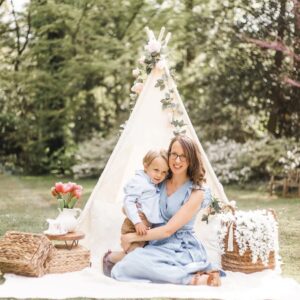I’m a mom of 2 boys who are close in age but very different from one another. My 7-year-old son was recently diagnosed with a learning disability, and he is struggling with his self-confidence. My 6-year-old son is quicker to pick up on things than my oldest, and he performs better academically. We have tried putting them in activities together like soccer, swimming and tennis, but my youngest child is consistently performing better. It is starting to affect my oldest son. How do I navigate this situation?
Your older son has undergone an assessment which has highlighted the areas in which he will benefit from additional support, the areas in which he might find things a little trickier.
But these challenges are not who he is. They are merely one small part of his whole self. Talk to him about this. Create a “parts picture.” Ask him to lie down on a huge sheet of paper (this makes it more fun) and draw an outline of his body. Take time one-on-one to think about, and celebrate, all the parts that make him who he is. Think about things he enjoys, what sort of person he is, his interests etc. Use specific examples to create more meaning.
Some ideas:
“You are such a caring child. I remember once when your cousin dropped her ice cream at the park, you offered to share yours with her.”
“You have such a curious mind. You love learning all about animals and you know more animal facts than anyone I know!”
“You persevere. Even when things feel tricky. Learning to ride your scooter was tricky for you. It took time and effort and now you can zip down the street without any difficulty!”
There is a phrase I love, which is:
“If you judge a fish by its ability to climb a tree, it will live its whole life believing that it is stupid.”
Remind yourself that you have two children who are each individuals.
Avoid comparing them and encourage them to move away from comparing themselves to each other. Consider ways that you can create opportunities for your older son to explore hobbies and interests that are unique to him without his younger brother being present to compare himself to. Allow him opportunities to attend activities without his brother if you can.
Finally, consider the research of Carol Dweck and work to develop a “growth mindset” in your children by helping them to see mistakes as evidence of effort, and as an invaluable part of learning (you can see her work and materials on Amazon). Place value on effort and recognize perseverance, rather than praising completion of a task, or viewing intelligence as “fixed.” Encourage your son to recognize that he is always learning, and he will keep learning until things that he finds tricky now, don’t feel so tricky in the future.

















